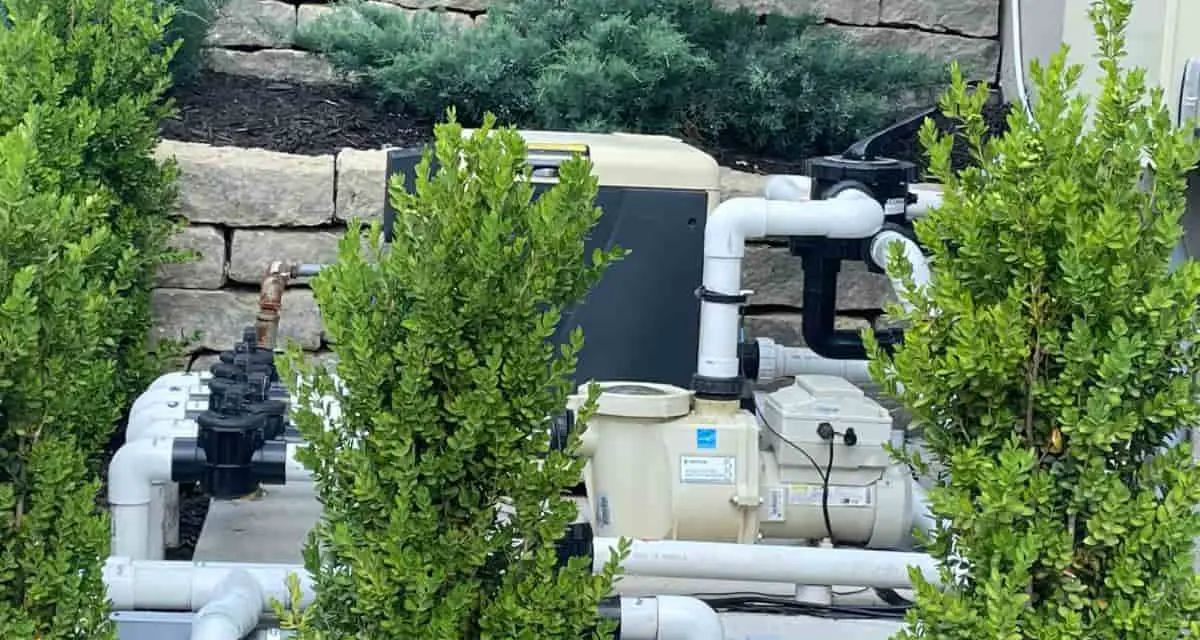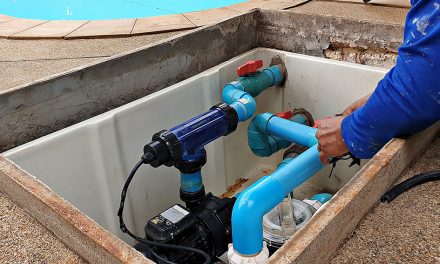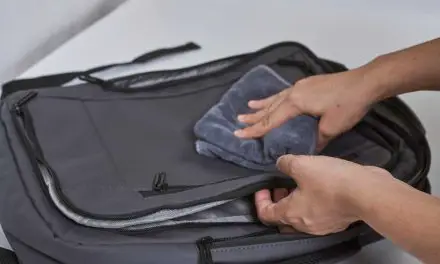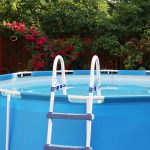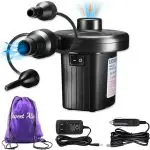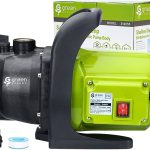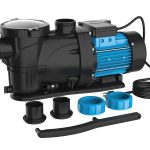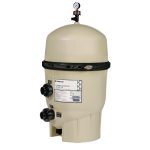To block neighbors’ pool pump noise, use a pool pump cover or invest in soundproofing materials. Eliminating or reducing the noise can greatly enhance the enjoyment of your outdoor pool area.
1. Create A Sound Barrier
To block your neighbor’s pool pump noise, there are several options you can explore. One option is to create a sound barrier using wall-mounted soundproofing panels. These panels can help absorb and deflect the noise, preventing it from reaching your space.
Another option is to install an acoustic fence around your property. The fence can act as a physical barrier, blocking the noise from entering your yard. If you have the means and space, you could also consider building a noise-blocking wall between your property and your neighbor’s.
This wall would serve as a solid barrier, effectively reducing the noise transmission. By implementing these strategies, you can create a more peaceful and quiet environment in your outdoor space.
2. Utilize Natural Elements
Planting dense hedges or trees around your outdoor space can help block out your neighbor’s pool pump noise. These natural elements act as a barrier, absorbing and reducing sound waves. Another option is to install a water feature in your yard, such as a fountain or waterfall, which can help mask the noise from the pump.
Additionally, strategically placing outdoor furniture, like patio tables and chairs, can also help create a buffer between you and the noise source. By utilizing these natural elements and strategic placement techniques, you can effectively minimize the impact of your neighbor’s pool pump noise on your outdoor enjoyment.
3. Enhance Your Surroundings
Enhance your surroundings by adding outdoor rugs or carpets. These can help absorb and reduce pool pump noise. Hanging sound-absorbing curtains or drapes can also be effective in minimizing noise levels. Additionally, using noise-reducing materials for outdoor structures, such as fences or walls, can further block out the sound.
By implementing these measures, you can create a more peaceful and enjoyable outdoor environment, free from the noise pollution caused by your neighbor’s pool pump. Improve your outdoor experience by taking these steps to block and reduce the noise generated by the neighboring pool pump.
4. Invest In Soundproofing Solutions
To block neighbors’ pool pump noise, consider investing in soundproofing solutions. Installing noise-canceling windows or doors, using soundproofing insulation in walls and ceilings, and applying acoustic paint or wallpaper can significantly reduce the noise. These measures create a barrier that absorbs and dampens sound, making your pool area more peaceful and enjoyable.
By taking these steps, you can minimize the impact of your neighbor’s pool pump noise and create a quieter outdoor space for relaxation and leisure activities.
5. Explore Pool Pump Enclosure Options
When it comes to blocking your neighbor’s pool pump noise, one effective solution is to explore pool pump enclosure options. Installing a pool pump cover or shed can significantly reduce the noise levels. Another option is to construct a custom-built pump enclosure designed specifically for noise reduction.
Additionally, using noise-reducing equipment or insulation for the pump can further minimize the noise. By implementing these strategies, you can create a quieter and more enjoyable outdoor space without being disturbed by your neighbor’s pool pump noise.
6. Optimize The Pool Pump Location
To block the noise from your neighbor’s pool pump, one effective solution is to optimize the pump’s location. By relocating it away from neighboring properties, you can significantly reduce the noise that reaches their homes. Another option is to build a soundproof enclosure around the pool pump area.
This enclosure will help contain the noise and prevent it from spreading. Additionally, you can utilize landscaping to create a buffer zone between the pump and neighboring properties. Planting trees, installing a fence, or utilizing shrubs can all help absorb and block the sound.
By following these guidelines, you can minimize the impact of your neighbor’s pool pump noise and create a more peaceful environment for everyone.
7. Consider Soundproofing Accessories
To block the noise from your neighbor’s pool pump, consider using soundproofing accessories. One option is to use anti-vibration pads for the pool pump, which can help reduce the noise caused by vibrations. Another option is to install a soundproofing blanket or wrap around the pump, which can absorb and dampen the sound waves.
Additionally, incorporating a noise-reducing baffle or muffler can further decrease the noise emitted by the pump. These accessories can help create a quieter and more enjoyable outdoor environment by minimizing the disruptive pool pump noise.
8. Communicate With Your Neighbors
When it comes to blocking neighbor’s pool pump noise, communication is key. Discuss the issue with your neighbors and try to find a mutually agreeable solution. Explain the impact of the noise on your daily life and discuss possible remedies.
Collaborate with your neighbors on noise-blocking measures to find the most effective solution. By working together, you can alleviate the noise issue and maintain a peaceful living environment.
9. Legal Options For Noise Reduction
Researching local noise ordinances and regulations is the first step towards blocking your neighbor’s pool pump noise. Familiarize yourself with the rules and regulations in your area to understand the legal options available to you. If the noise is excessive and violates the noise ordinances, you can file a complaint with the appropriate authorities.
If the problem persists, seeking legal assistance might be necessary to address the noise complaints. Engaging in mediation or arbitration services can also help resolve the issue without resorting to legal action. Exploring these options can provide you with a systematic approach to dealing with the noise and finding a resolution that benefits both parties involved.
10. Regular Maintenance And Checks
Regular maintenance and checks play a crucial role in blocking neighbors’ pool pump noise. By ensuring proper maintenance and servicing of the pool pump, you can minimize noise. This includes checking for loose components or worn-out parts and addressing any issues promptly.
Regular maintenance keeps the pool pump running smoothly and reduces noise levels.
Frequently Asked Questions On How To Block Neighbors Pool Pump Noise?
How Do You Muffle The Sound Of A Pool Pump?
To muffle the sound of a pool pump, you can try using a pool pump cover or enclosure.
How Loud Is Too Loud For Pool Pump?
A normal pool pump runs between 65-90 decibels, which is as loud as being on a subway car.
How Do I Dampen My Neighbors Sound?
To dampen your neighbor’s sound, try these 7 soundproofing hacks: 1. Furnish your space to add extra noise-absorbing materials. 2. Use your gallery wall to help block out sound. 3. Install acoustic panels on your walls to reduce noise. 4. Seal any leaky doors to minimize sound travel.
5. Build a home library to add extra buffering against noise. 6. Hang wall decorations and upgrade curtains to help muffle sound. 7. As a last resort, cover up the noise with background music or white noise.
Conclusion
To conclude, there are several effective strategies you can implement to block your neighbor’s pool pump noise. One option is to construct a soundproof fence or barrier, using materials like wood, landscape fabric, or acoustic paneling. Another approach is to install a pool pump cover, specifically designed to reduce noise and vibrations.
Additionally, planting dense foliage or creating a landscaped buffer zone between your properties can help absorb and block soundwaves. You can also consider using white noise machines or playing soothing music to minimize the impact of the noise. Finally, open communication with your neighbor may lead to collaborative solutions, like adjusting the pump’s operating hours or exploring alternative pump models that are quieter.
By employing these techniques, you can reclaim the peace and tranquility of your outdoor space, while maintaining a positive relationship with your neighbors.

